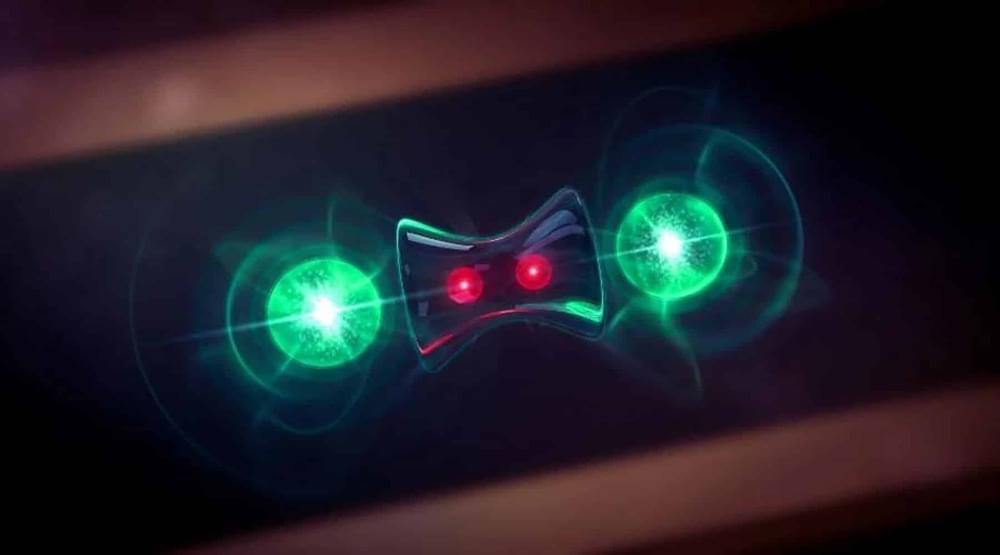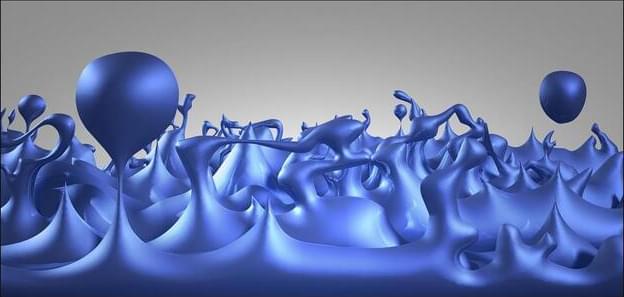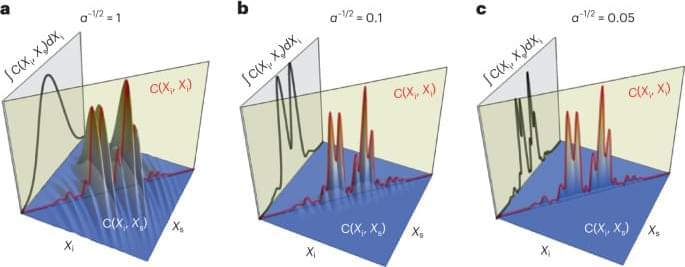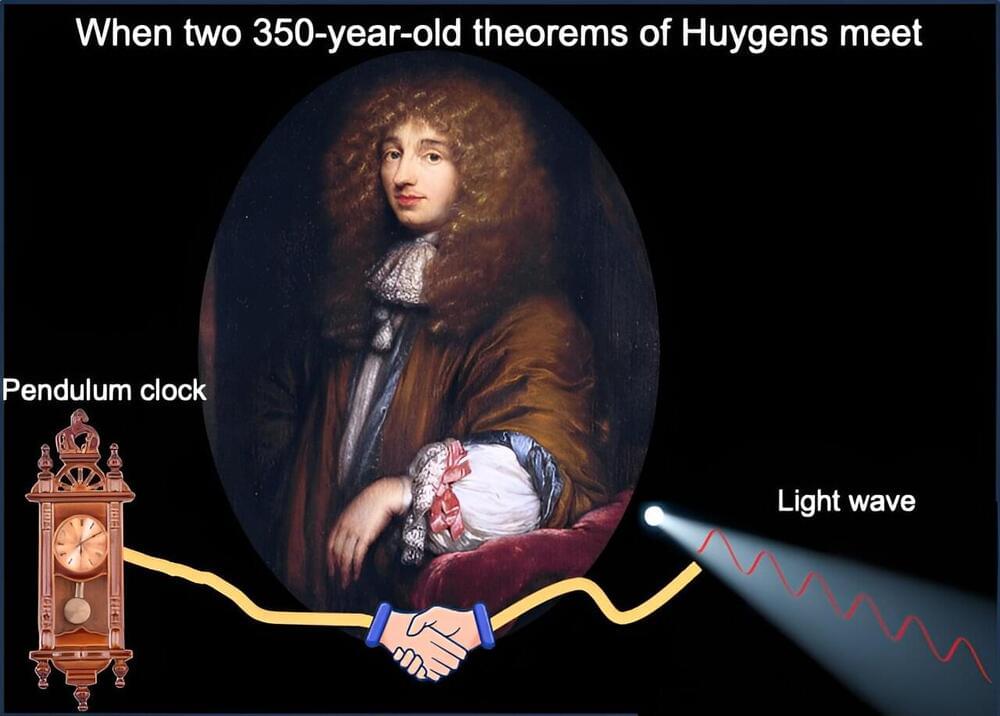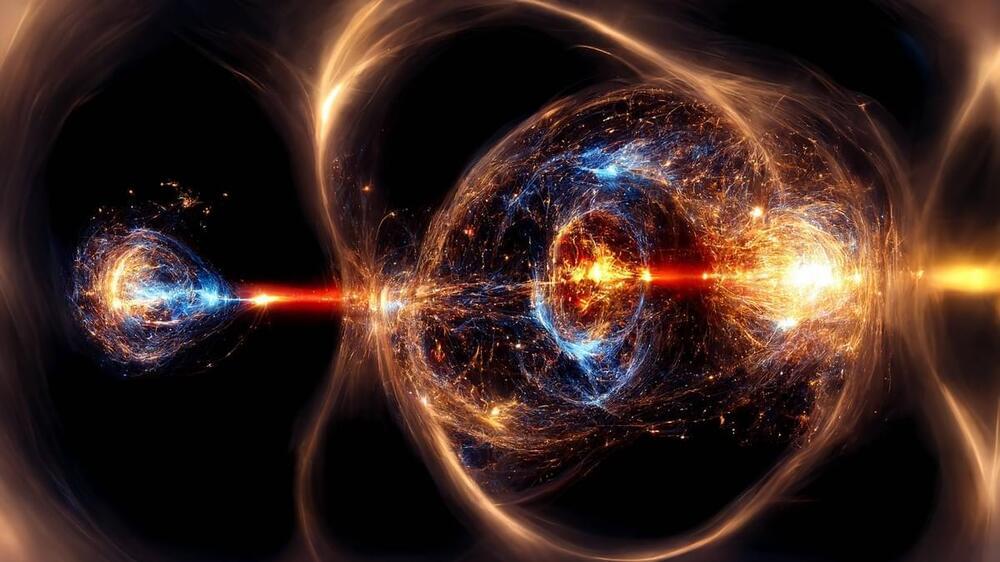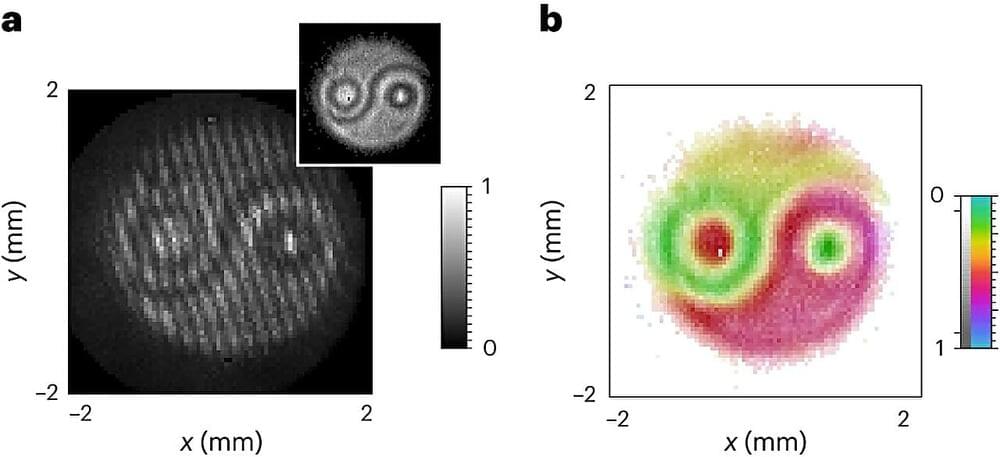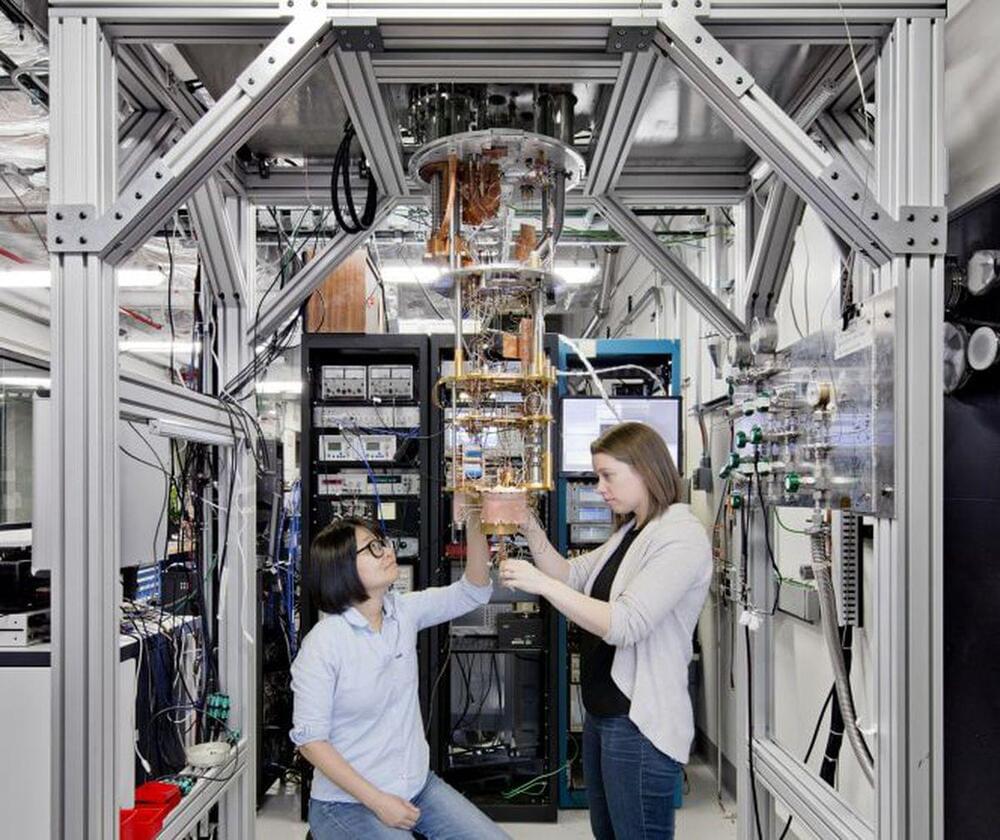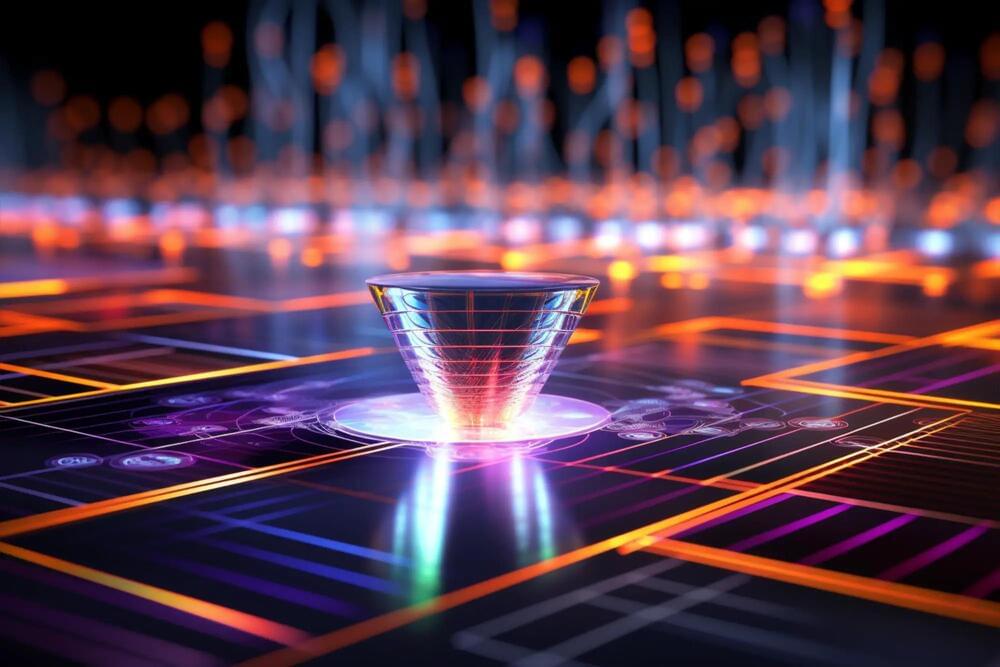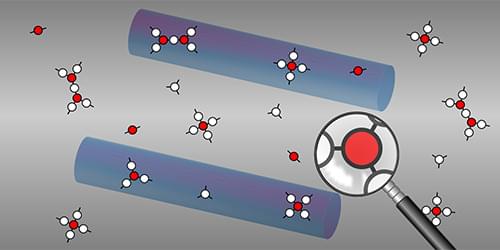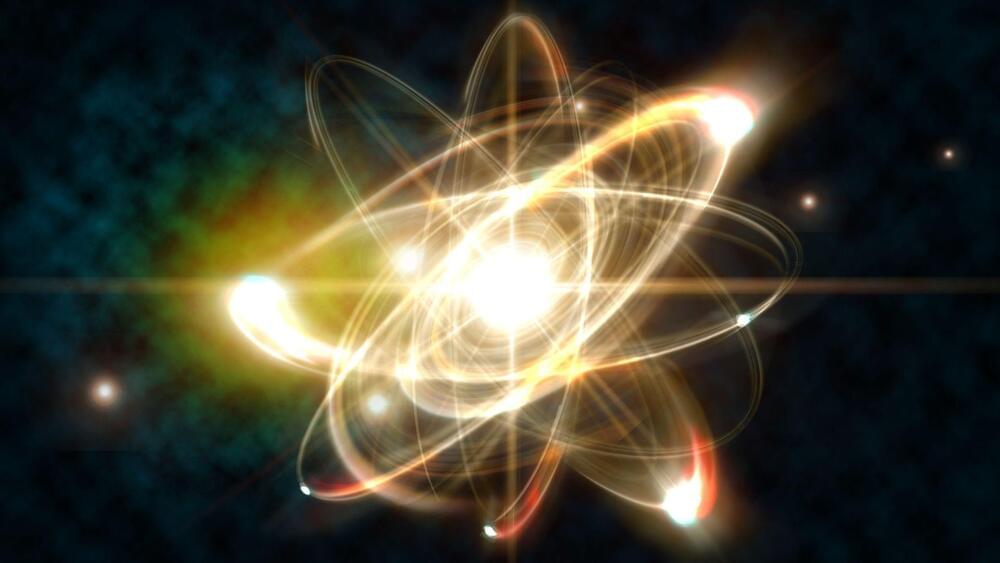Archive for the ‘quantum physics’ category: Page 244
Aug 22, 2023
Is Spacetime Continuous or Discrete?
Posted by Dan Breeden in categories: neuroscience, particle physics, quantum physics
The ancient Greek philosopher Aristotle wrote in his manuscript on Physics 2,373 years ago: “If everything that exists has a place, place too will have a place, and so on ad infinitum.” Is the notion of space being continuous ‘without limit’ justified?
Before elementary particles were discovered, water was thought to be a continuous fluid. This is a good approximation on large scales but not on molecular scales where the interactions among elementary particles matter.
Similarly, spacetime has been thought to be a continuum since ancient times. While this notion appears consistent with all experimental data on large spatial or temporal scales, it may not be valid on tiny scales where quantum effects of gravity matter. An analogy can be made with the illusion of a movie which appears continuous when the frame rate is high enough and the spatial pixels are small enough for our brain to process the experience as seamless. Since our brain is made of elementary particles, the temporal and spatial resolution by which it senses reality is coarser by many orders of magnitude than any fundamental scale by which spacetime is discretized.
Aug 21, 2023
Interferometric imaging of amplitude and phase of spatial biphoton states
Posted by Saúl Morales Rodriguéz in categories: computing, quantum physics
Photonic qudits are emerging as an essential resource for environment-resilient quantum key distribution, quantum simulation and quantum imaging and metrology1. The availability of unbounded photonic degrees of freedom, such as time-bins, temporal modes, orbital angular momentum (OAM) and radial number1, allows for encoding large amounts of information in fewer photons than would be required by qubit-based protocols (for example, when using only polarization). At the same time, the large dimensionality of these states, such as those emerging from the generation of photon pairs, poses an intriguing challenge for what concerns their measurement. The number of projective measurements necessary for a full-state tomography scales quadratically with the dimensionality of the Hilbert space under consideration2. This issue can be tackled with adaptive tomographic approaches3,4,5 or compressive techniques6,7, which are, however, constrained by a priori hypotheses on the quantum state under study. Moreover, quantum state tomography via projective measurement becomes challenging when the dimension of the quantum state is not a power of a prime number8. Here we try to tackle the tomographic challenge, in the specific contest of spatially correlated biphoton states, looking for an interferometric approach inspired by digital holography9,10,11, familiar in classical optics. We show that the coincidence imaging of the superposition of two biphoton states, one unknown and one used as a reference state, allows retrieving the spatial distribution of phase and amplitude of the unknown biphoton wavefunction. Coincidence imaging can be achieved with modern electron-multiplying charged coupled device cameras12,13, single photon avalanche diode arrays14,15,16 or time-stamping cameras17,18. These technologies are commonly exploited in quantum imaging, such as ghost imaging experiments19 or quantum super-resolution20,21, as well as for fundamental applications, including characterizing two-photon correlations13,22, imaging of high-dimensional Hong–Ou–Mandel interference23,24,25, and visualization of the violation of Bell inequalities26. Holography techniques have been recently proposed in the context of quantum imaging27,28,29; demonstrating the phase-shifting digital holography in a coincidence imaging regime using polarization entanglement27, and exploiting induced coherence, that is, the reconstruction of phase objects through digital holography of undetected photons28.
In this work, we focus on the specific problem of reconstructing the quantum state (in the transverse coordinate basis) of two photons emerging from degenerate spontaneous parametric down-conversion (SPDC). These states are characterized by strong correlations in the transverse position (considered on the plane where the two-photon generation happens), which can be observed in other kinds of photon sources such as cold atoms30. In these sources, the two-photon wavefunction strongly depends on the shape of the pump laser used to induce the down-conversion process31. The most commonly used approach in the literature to reconstruct the biphoton state emitted by a nonlinear crystal is based on projective techniques32,33,34. This method has drawbacks concerning measurement times (as it needs successive measurements on non-orthogonal bases) and the signal loss due to diffraction. We proposed an imaging-based procedure capable of overcoming both of the issues mentioned above, while giving the full-state reconstruction of the unknown state. The core idea lies in assuming the SPDC state induced by a plane wave as known, and in superimposing this state with the unknown biphoton state. Unless the superposition is achieved directly on the crystal plane, a full analysis of the four-dimensional distribution of coincidences is necessary to retrieve the interference between the two wavefunctions. This information can be visualized by observing coincidence images, defined as marginals of the coincidence distribution obtained integrating over the coordinates of one of the two photons. In fact, obtaining coincidence images after post-selecting specific spatial correlations allows retrieval of the phase information, likewise in cases in which the state does not exhibit sharp spatial correlations. We demonstrate this technique for pump beams in different spatial modes, including Laguerre–Gaussian (LG) and Hermite–Gaussian (HG) modes. We investigate several physical effects from the reconstructed states, such as OAM conservation, the generation of high-dimensional Bell states, parity conservation and radial correlations. Remarkably, we show how, from a simple measurement, one can retrieve information about two-photon states in arbitrary spatial mode bases without the efficiency and alignment issues that affect previously implemented projective characterization techniques. Depending on the source brightness and the required number of detection events, the measurement time can be of the order of tens of seconds, whereas the previously implemented projective techniques required several hours and were limited to the exploration of a small subspace of spatial modes. As a latter example, we give a proof of principle demonstration of the use of this technique for quantum imaging applications.
Aug 21, 2023
Physicists use a 350-year-old theorem to reveal new properties of light waves
Posted by Saúl Morales Rodriguéz in categories: particle physics, quantum physics, space
Since the 17th century, when Isaac Newton and Christiaan Huygens first debated the nature of light, scientists have been puzzling over whether light is best viewed as a wave or a particle—or perhaps, at the quantum level, even both at once. Now, researchers at Stevens Institute of Technology have revealed a new connection between the two perspectives, using a 350-year-old mechanical theorem—ordinarily used to describe the movement of large, physical objects like pendulums and planets—to explain some of the most complex behaviors of light waves.
The work, led by Xiaofeng Qian, assistant professor of physics at Stevens and reported in the August 17 online issue of Physical Review Research, also proves for the first time that a light wave’s degree of non-quantum entanglement exists in a direct and complementary relationship with its degree of polarization. As one rises, the other falls, enabling the level of entanglement to be inferred directly from the level of polarization, and vice versa. This means that hard-to-measure optical properties such as amplitudes, phases and correlations—perhaps even these of quantum wave systems—can be deduced from something a lot easier to measure: light intensity.
“We’ve known for over a century that light sometimes behaves like a wave, and sometimes like a particle, but reconciling those two frameworks has proven extremely difficult,” said Qian “Our work doesn’t solve that problem—but it does show that there are profound connections between wave and particle concepts not just at the quantum level, but at the level of classical light-waves and point-mass systems.”
Aug 21, 2023
Can We Do Great Things By Thinking Smaller? This Is How Quantum Computing Is Set To Change The World
Posted by Dan Breeden in categories: computing, quantum physics
This content was paid for by HSBC. The newsroom was not involved in the creation of this content.
Aug 21, 2023
Visualizing the mysterious dance: Quantum entanglement of photons captured in real-time
Posted by Dan Breeden in categories: particle physics, quantum physics
Researchers at the University of Ottawa, in collaboration with Danilo Zia and Fabio Sciarrino from the Sapienza University of Rome, recently demonstrated a novel technique that allows the visualization of the wave function of two entangled photons, the elementary particles that constitute light, in real-time.
Using the analogy of a pair of shoes, the concept of entanglement can be likened to selecting a shoe at random. The moment you identify one shoe, the nature of the other (whether it is the left or right shoe) is instantly discerned, regardless of its location in the universe. However, the intriguing factor is the inherent uncertainty associated with the identification process until the exact moment of observation.
The wave function, a central tenet in quantum mechanics, provides a comprehensive understanding of a particle’s quantum state. For instance, in the shoe example, the “wave function” of the shoe could carry information such as left or right, the size, the color, and so on.
Aug 21, 2023
‘Classic’ defeats quantum: with the use of conventional computing, two teams surpass IBM’s groundbreaking 127 qubit processor
Posted by Paul Battista in categories: computing, quantum physics
Simulations utilizing ‘modest computational systems’ have achieved equivalent results as the technology multinational, just weeks after the milestone was published in the journal ‘Nature’
Aug 21, 2023
Discovery Unlocks Terahertz Technology for Quantum Sensing
Posted by Paul Battista in categories: mobile phones, quantum physics
Metal oxide’s properties could enable a wide range of terahertz frequency photonics.
Visible light is a mere fraction of the electromagnetic spectrum, and the manipulation of light waves at frequencies beyond human vision has enabled such technologies as cell phones and CT scans.
Rice University researchers have a plan for leveraging a previously unused portion of the spectrum.
Aug 20, 2023
Constructing Field Theories Using Quantum Simulators
Posted by Dan Breeden in category: quantum physics
Quantum simulators can help researchers extract the key parameters of a quantum field theory from experiments.
One of the greatest challenges in physics is to understand how collective, macroscopic behaviors, such as phase transitions, emerge from the microscopic dynamics of the constituents of a system. A pivotal approach to tackle such many-body problems is offered by quantum field theory (QFT), which plays a central role in describing, for instance, superconductivity and the quantum Hall effect. QFT makes a number of problems solvable by describing a system in terms of fields distributed in space and time, while neglecting many of the microscopic details of the system. However, when developing a QFT description for a given system, it can be challenging to derive the theory’s parameters from experiments, limiting the theory’s predictive power. Now, Torsten Zache of Heidelberg University, Germany, and colleagues have demonstrated a new approach to incorporate experimental data into the construction of a QFT [1].
Aug 20, 2023
Pairing of electrons in an artificial atom leads to a breakthrough
Posted by Gemechu Taye in categories: particle physics, quantum physics
The state, known as the Machida-Shibata state, involves the pairing of electrons in an artificial atom on the surface of a superconductor.
A team of physicists from Hamburg University has made a breakthrough in the field of quantum physics by observing a rare state of matter that was predicted by Japanese theorists more than half a century ago.
Credits: EzumeImages/iStock.
Continue reading “Pairing of electrons in an artificial atom leads to a breakthrough” »
